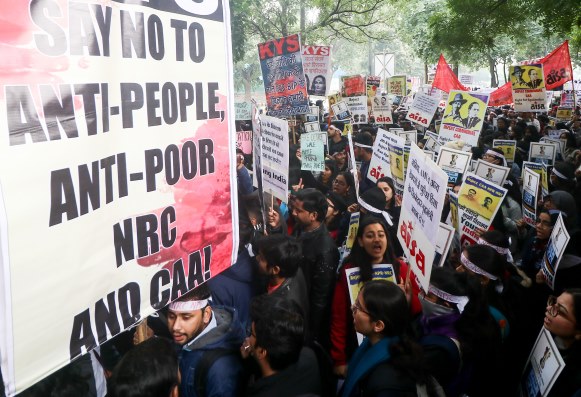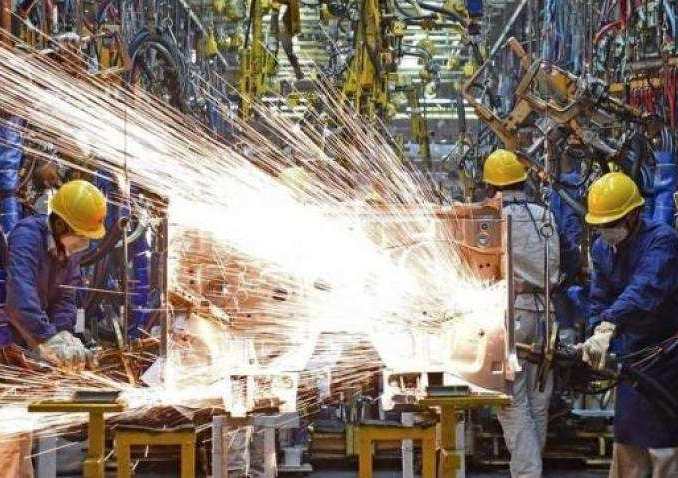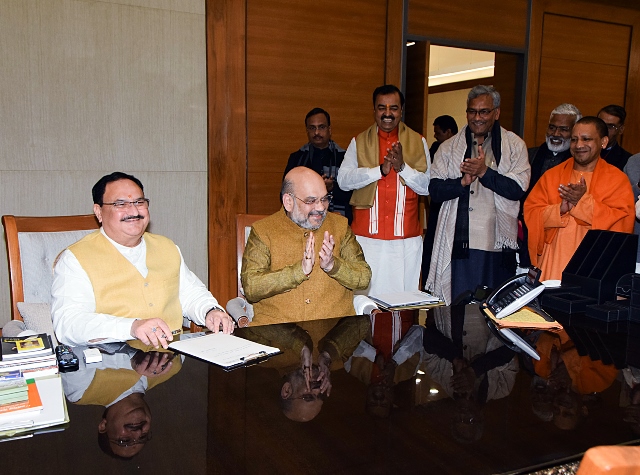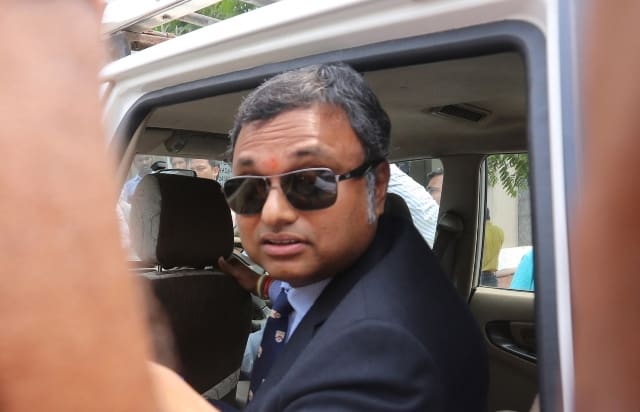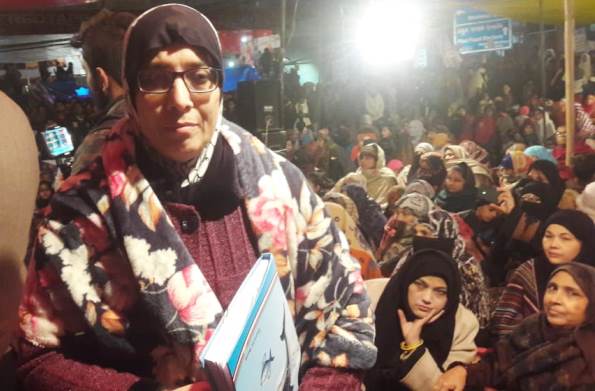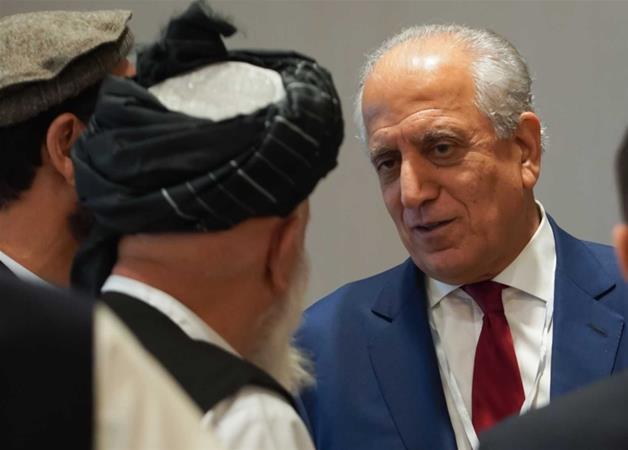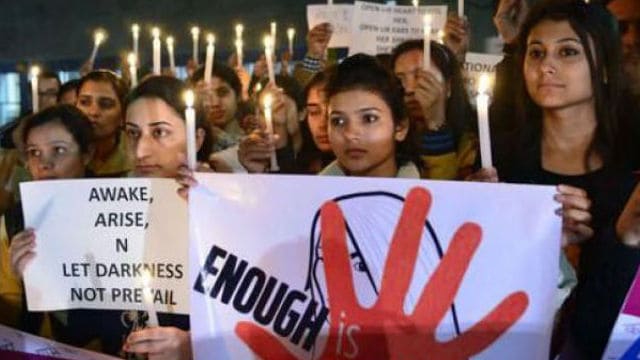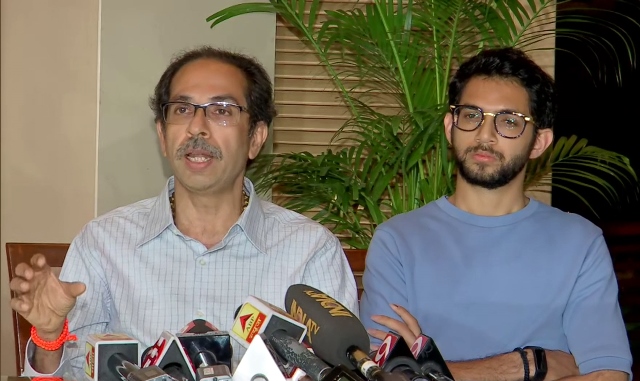Contrary to an earlier public perception, the agitation against the Citizenship Amendment Act and the National Register of Citizens is not petering out. In fact, the January 5 armed attack by masked “goons” on students and teachers of Jawaharlal Nehru University has triggered a wave of protests on university campuses across the country.
It is still not clear if the student community, which has been joined by others, will be able to sustain these protests but there is no doubt that the youth is angry and is not afraid of hitting the street and taking on the ruling dispensation.
ALSO READ: Deconstructing India’s New Citizenship Law
The Modi government, however, has refused to backtrack on the implementation of the CAA though Prime Minister Narendra Modi has attempted to allay fears over a proposed nation-wide NRC, saying the matter has not been discussed in the Cabinet. Home Minister Amit Shah, on the other hand, has made it abundantly clear that the government has no intention of revoking the new citizenship law and that a nation-wide NRC was very much on the table.
Instead of opening a dialogue with the agitators, the Centre has sought to crush the protests by unleashing the police on the dissenters and accused the opposition of inciting violence with its faulty interpretation of the citizenship law.
At the same time, the ruling Bharatiya Janata Party and its ministers have embarked on a door-to-door campaign to explain the provisions of the CAA to the people and dispel any misconceptions about the law. The citizenship law, it is being explained, is not about taking away citizenship but giving citizenship to persecuted Hindus, Sikhs, Jains and Christians from Pakistan, Bangladesh, and Afghanistan. Muslims have been omitted from this list.
ALSO READ: Citizenship Law And Justice For All
Convinced that the protests will gradually peter out, the Modi government has undoubtedly been taken aback by the fact that the demonstrators are continuing with their fight. But the Centre is confident that this crisis will blow over as it believes that those opposing the CAA are in a minority and that the new law has failed to erode its support base. On the contrary, the BJP is convinced that the new citizenship law enjoys the popular support of the silent majority who are unmoved by the argument that it tinkers with the basic structure of the Indian Constitution. As for the NRC and NPR, the implications of this exercise have yet to be comprehended by the people who are, by and large, unconcerned about it as long as it does not affect them personally.
In fact, the BJP is actively working to ensure that the ongoing protests are perceived to be organized and led primarily by Muslims. This strategy has been particularly effective in Uttar Pradesh where its rabid chief minister Yogi Adityanath ordered a brutal police crackdown on Muslims in which 20 persons were killed and several injured. In a state which is already highly polarised, it is not surprising that Yogi’s tactics have resonated with the people and resulted in further Hindu consolidation in favour of the BJP.
The objective is to keep the “communal” pot boiling in order to reap electoral benefit first in Delhi and, more importantly, in next year’s assembly election in West Bengal, a state which the BJP is extremely keen to wrest from Mamata Banerjee’s Trinamool Congress. Here again, the BJP is not unduly worried about the intellectuals, writers and activists who are agitating against the CAA. The party is instead keen on weaning away the underclass from the Trinamool as it is the BJP’s understanding that playing up the Hindu-Muslim divide with its repeated emphasis on illegal immigration appeals to this section.
ALSO READ: If Amit Shah Can’t Budge On CAA, Shaheen Bagh Won’t Either
The BJP is also helped by the fact that the opposition is hopelessly divided and has been virtually rendered irrelevant during these protests which have been led by students and ordinary citizens. While most opposition parties have rejected the new citizenship law, the NRC and the NPR, they have proved incapable of taking leadership of these protests or giving it any direction.
The opposition has also failed, so far, to communicate how the NPR and NRC will impact an ordinary citizen, especially the poor and the illiterate. The only exception here is West Bengal chief minister Mamata Banerjee who lost no time in hitting the streets and spelling out the dangers of the BJP’s latest policies. However, the political class is still trying to gauge if the protests are confined to the urban areas and whether the message has truly percolated down to the rural hinterland.
In an attempt to take advantage of the growing anger among the people, Congress president Sonia Gandhi called a meeting of opposition parties on January 13 to draw up a joint strategy on the CAA-NRC-NPR as well as the students’ agitation but several parties including the Trinamool Congress, the Samajwadi Party, the Bahujan Samaj Party, the Shiv Sena and the DMK chose to stay away from it. The 20 parties which did attend reiterated their opposition to the new citizenship law and demanded that the NPR be suspended and the NRC be put in cold storage.
However, the big challenge before the opposition is to enlarge the protests beyond students and activists in urban areas by bringing in different sections like Dalits and farmers to cash in on their disillusionment with the BJP. For this, they clearly have to move away from conference rooms and connect with the people. Unless the opposition gets its act together and ensures that its message reaches an ordinary citizen, the BJP’s powerful and well-oiled propaganda machinery will always have the upper hand.
